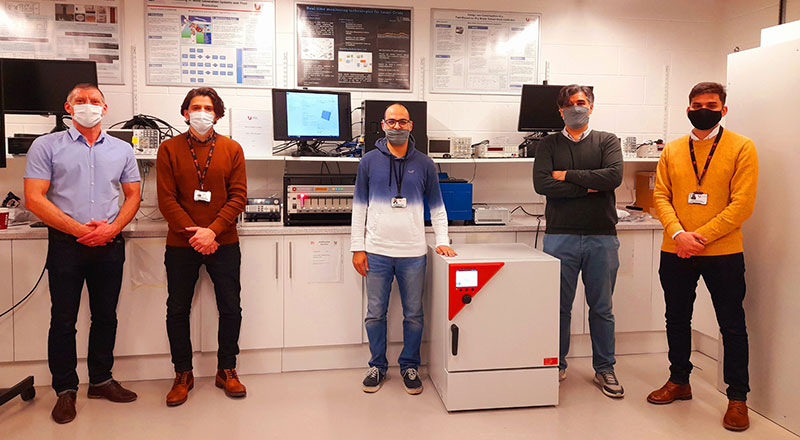Research team develop pioneering battery management for electric cars
A team of Teesside University researchers have carried out ground-breaking work which sees artificial intelligence used to extend the life of batteries commonly used in electric cars.

It comes as Tees Valley leaders call for billionaire entrepreneur Elon Musk to bring his giant electric car Gigafactory to the region. Tesla Motors, founded by Musk, previously included Hartlepool in a shortlist of possible locations for its new car plant.
The research team, led by Professor Michael Short from Teesside University’s Centre for Sustainable Engineering, has developed novel prediction algorithms for enhanced management and control of batteries.
The battery research had led to development of novel diagnostics and prognostics algorithms based upon Advanced Signal Processing, Artificial Intelligence and Adaptive Control to enhance the lifetime and estimate the state-of-health in Li-on batteries, which are commonly used in electric vehicles and Electrical Grid applications.
The research team, co-ordinated by Dr Maher Al-Greer, used a novel testing facility recently constructed in the University’s School of Computing, Engineering & Digital Technology, providing more accurate and reliable measures of battery health and state-of-charge. It can be used to improve the performance, range and efficiency of electric vehicles.
Professor Short said: “Research in the area of energy storage, management and control at the University can be traced back over ten years, with centre staff leading and contributing to several large-scale European projects around Smart Energy themes. I am very pleased with the way the research has now been driven forward into the area of Li-on battery management by my colleague Dr Al-Greer.”
He added: “Recent announcements related to the proposed construction of a battery Gigafactory in the North East, to support the manufacture of electric vehicles, is an exciting development and provides a vote of confidence in the region’s research and development expertise in this area. We look forward to continue working with industry to apply our research in future.”
Research in the area of energy storage, management and control at the University can be traced back over ten years.
Dr Al-Greer said, “Given recent focus upon electric vehicles and grid energy storage for achieving Net Zero goals, since 2018 we have made a concerted effort to develop and apply our research to help extend the lifetime and enhance operation of Li-on battery storage units.
“We have developed multiphysics, equivalent circuit, empirical and semiempirical models to predict the degradation of batteries and used our new test facilities to confirm accuracy. In addition, we have integrated these models with our developed system identification algorithms to accurately estimate the states of battery.
“We hope this research will make a significant impact in battery management systems for electric vehicles.”
The successful research, which has been published in several esteemed journals and international conferences and featured on the front cover of International Journal of Energies, has shown that Deep Learning and Time Frequency analysis can be used to interpret battery data to give successful predictions battery internal state, and also how to best make use of the battery given its current state.
The work has also led to several national and international collaborative research funding applications.
 Teesside University academics join prestigious network of
...
Teesside University academics join prestigious network of
...